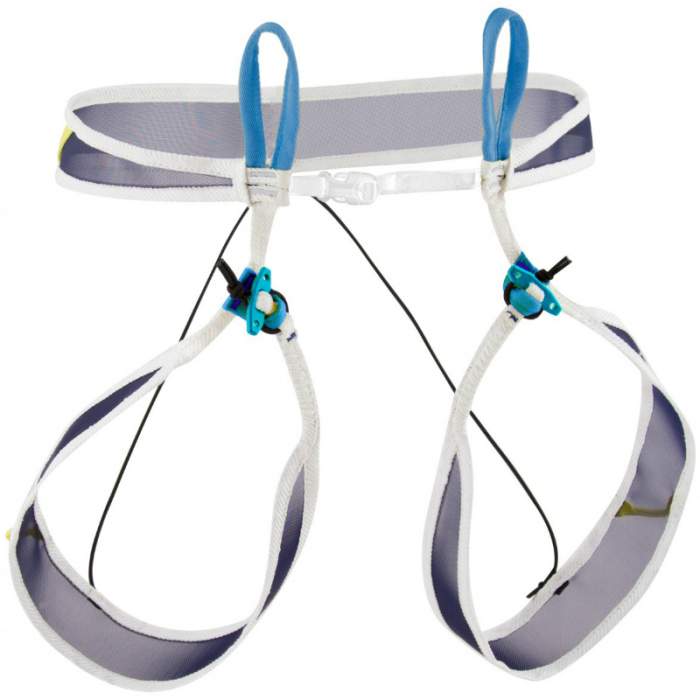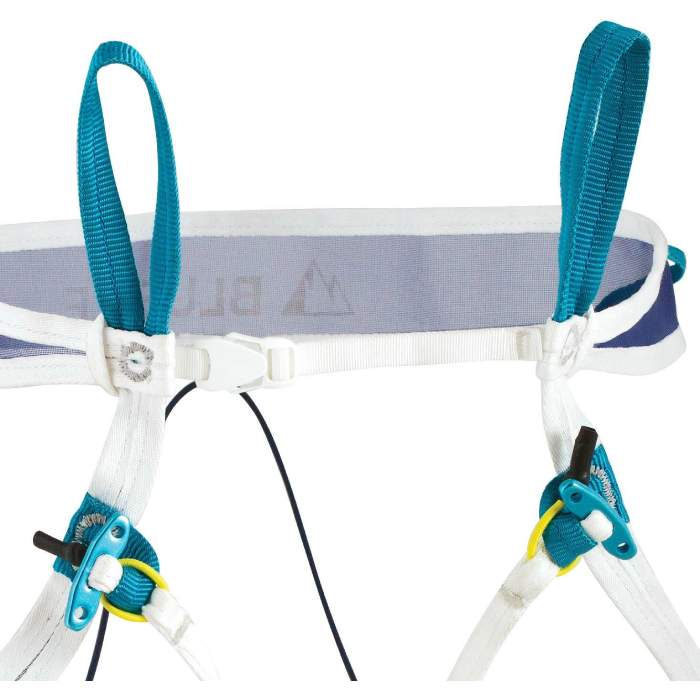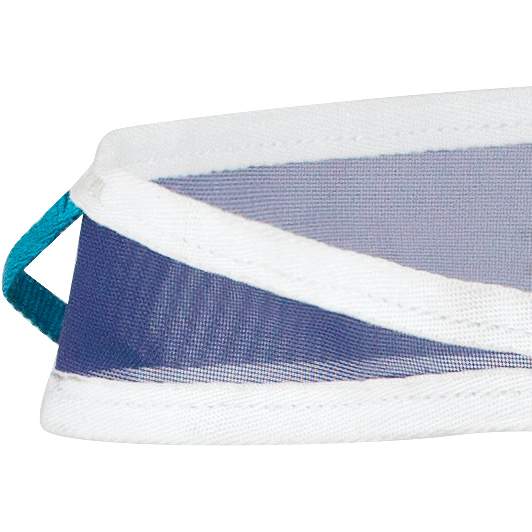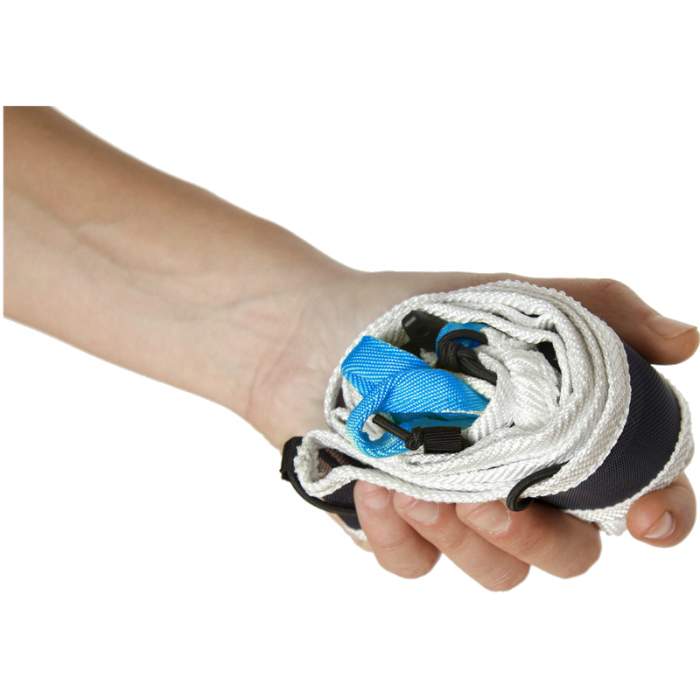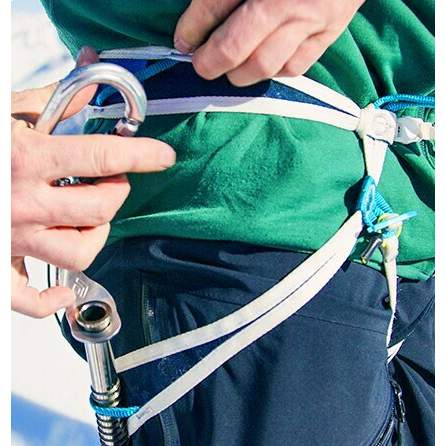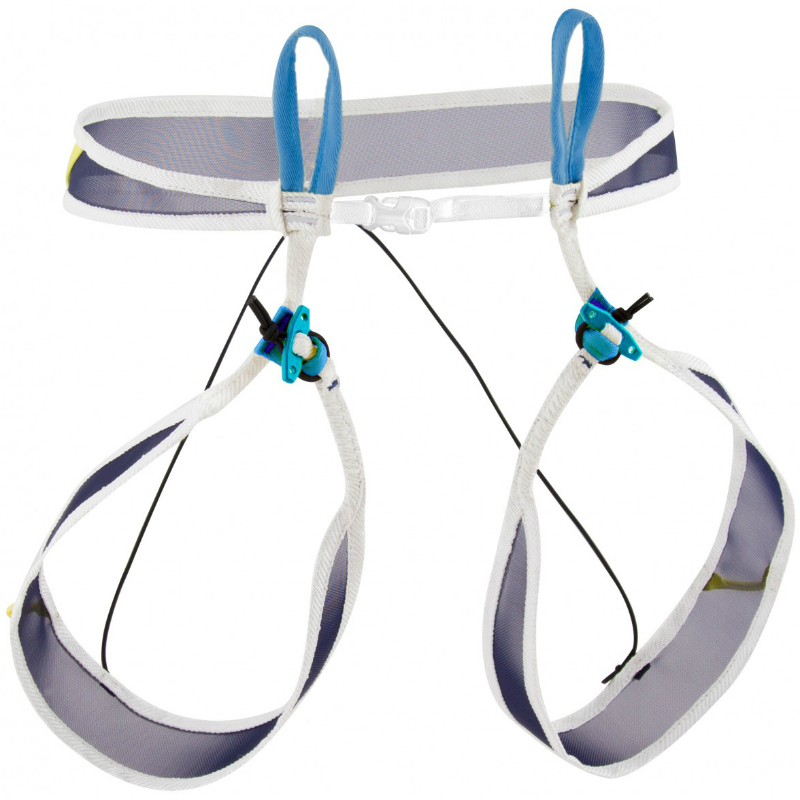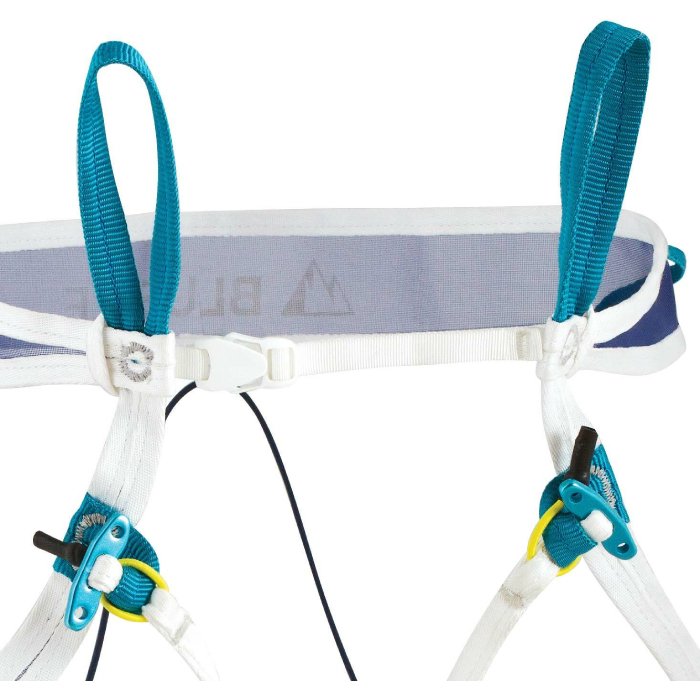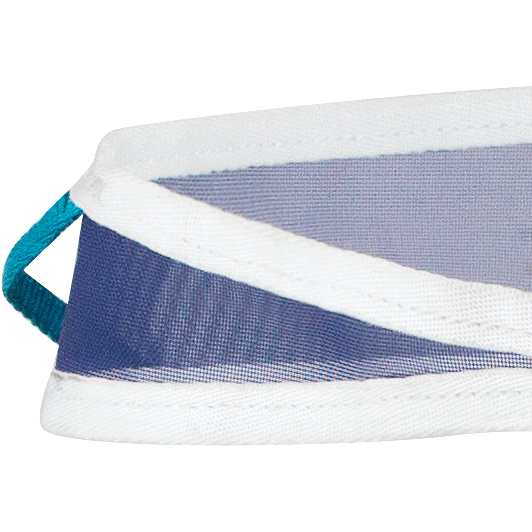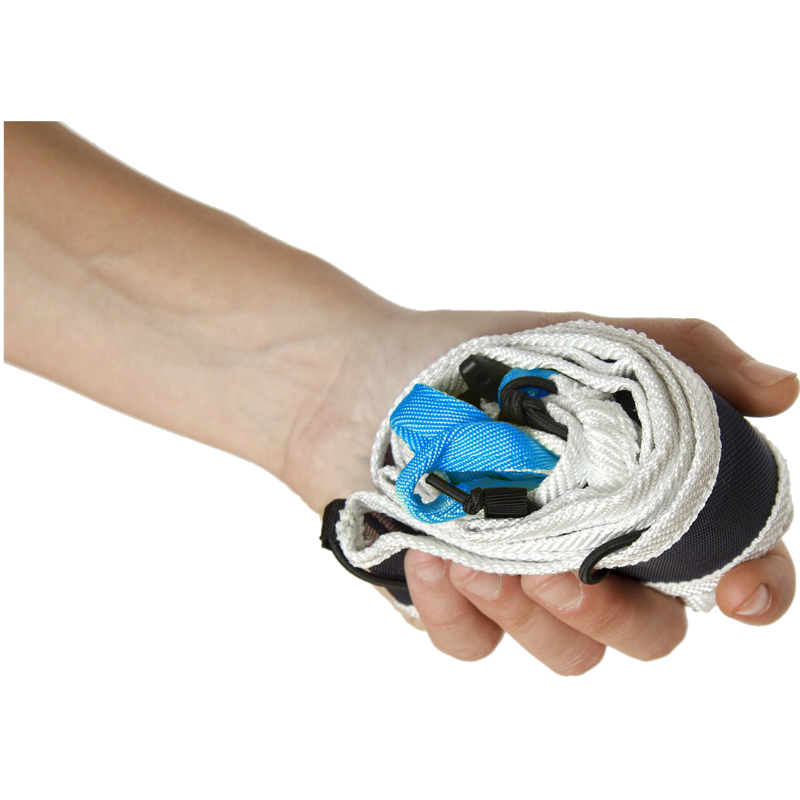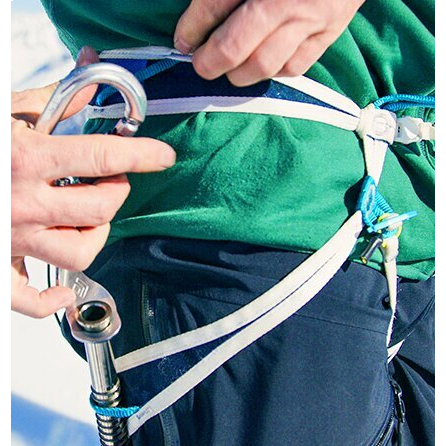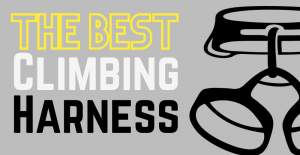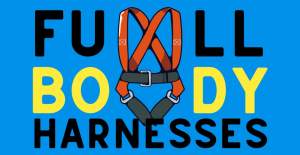How to use Blue Ice Harness, sizing precautions, care and maintenence with instructional pictures.
Choucas Light
Description
Once again, BLUE ICE introduces a small revolution in the climbing harness world. Winner of an Outdoor Award 2017, the new Choucas Light harness is probably the world's lightest harness you can put on with feet on ground and with independant opening leg loops. Weighting a mere 84 g (size S), it is lighter than a smartphone and, once folded, as compact as a headlamp. Still it features what you expect for a ski or alpinism harness, including two gear loops, an our iconic screw keepers on our openable leg loops. The secret for such lightness? Simplicity: two convenient tying loops instead of an opening metal buckle. An on the leg loops a handy, fast and secure opening system. The result is a harness being both ultralight and comfortable, whether when hanging for an occasional rappel or on the move. Never was an alpine and ski harness so light and convenient, but we struck this challenging balance with the Choucas Light harness.
- Can be put on/off with skis/crampons on, feet on ground
- Tying loops, with adjustable clip backup
- Independant leg loops opening system with secured aluminum buckles
- Webbing: UHMW polyethylene, polyamide, Aircraft-grade aluminum leg buckles
- Designed in Chamonix Mont-Blanc
Retail price
When you click a link below and then checkout online, no matter what you buy (climbing gear or not), we get a small commission that helps us keep this site up-to-date. Thanks!


Weight (g)  WeightIn grams, the weight, as stated by the manufacturer/brand. If there are differences in weight (due to multiple sizes or optional accessories) we'll list them here. The default weight is the middle-most size, often this is size M. | 89 g S: 84 g / 2.9 oz
M: 89 g / 3.1 oz L: 93 g / 3.2 oz XL: 95 g / 3.4 oz
(weight converted from grams to ounces) |
| Fit | Unisex |
| Sizes | S, M, L, XL, XXL |
Gear Loops  Number of Gear LoopsGear loops are used to hold gear (quickdraws, cams, etc) onto your harness. 4 gear loops is most common. 
0 - 1 Gear LoopsMost often on full body harnesses or guide/gym style harnesses. 2-3 Gear LoopsMostly found on lighter harnesses made for [ski] mountaineering or high-end sport climbing where weight is a high priority. 4 - 5 Gear LoopsThe standard/most common number for climbing harnesses. Perfect for sport and trad. More Than 6 Gear LoopsDesigned for long multi-pitch and big wall climbing, found on harnesses made to hold the maximum amount of gear. Worth ConsideringOccasionally, the number of gear loops will change on a harness model depending on the size. There could be 7 gear loops for the med/large but only 5 gear loops for the xsmall/small. In this case we list the highest number for the filters, and then write an explanation on the product page like, “Size S/XS can only fit 5 gear loops.” | 2 Gear loops |
Ice Clip Slots  Ice Clip SlotIce clipper slots are made to fit a carabiner that holds ice screws. These slots are generally only used by ice climbers but there is no disadvantage to having them on your harness. 
Less than 40% of harnesses will have ice clipper slots. And those harnesses will usually have 2 or 4 slots, often located next to, or between, the gear loops. | Yes, 2 |
| Belay / Tie-In | Tie-In |
| Waist Buckle Type | Clip |
| Leg Buckle Type | Clip |
| Drop Seat | No |
Haul Loop  Haul LoopTrad climbers often look for a haul loop as they're intended to haul a rope (second line) or pack (while you climb the chimney). 
A haul loop can also hold shoes or other accessories. Although not the intended use, it is also commonly used to hold a chalk bag. | No |
| Certification | CE, EN |
| Size Chart | S
Waist: 70-83 cm / 27.5-32.6 in Legs: 45-55 cm / 17.7-21.7 in M Waist: 80-93 cm / 31.4-36.6 in Legs: 50-60 cm / 19.7-23.6 in L Waist: 90-103 cm / 35.4-40.5 in Legs: 55-65 cm / 21.7-25.6 in XL (will fit the lower range of XXL)
Waist: 100-113 cm / 39.3-44.4 in Legs: 60-70 cm / 23.6-27.5 in (we converted centimeters to inches) |
No reviews yet.
If weight and mobility are the primary concerns on your mountaineering or skiing objective, there is no better choice than the Choucas Light. It is also a great choice for anyone who spends a lot of time climbing classic mountaineering routes on glaciers and snow slopes. This harness costs about as much as other high-performance harnesses, and the incredible weight savings make it a good value for niche users looking for a specialized harness. However, if you are looking for one harness that will be useful across many climbing disciplines, this isn't the one for you.
I’d say that the Choucas Light Harness is perfect for minimalist missions where you need a harness but likely won’t use it (by this I mean hang in it) so much. Ski touring and mountaineering, ski racing, easy alpinism and glacier travel are its forte. It’s light, comfortable (you barely feel like it’s there) and packs down to nothing. I’ve used mine a lot over a 6 week period and it’s also proving to be durable too.
The Choucas Light is meant for ski touring, alpinism and ice climbing. I used it during 50+ ice and alpine outings. Fitting in the palm of your hand, the Choucas takes up almost no room in a pack. Once it’s on, you hardly notice it, and it is so slim it rides with no bother under a pack waist belt. I missed having a belay loop, but got used to clipping through the two tie-in loops, which have the unique benefit of keeping your knot out of the way of your pack waist belt. Two gear loops, one on each hip, hold a couple of carabiners, but are too tight to be useful.
A pictoral representation of UIAA-105 and EN-12277 standards for harnesses.
The UIAA equipment standard provides a baseline for equipment performance in a test lab under controlled conditions on new equipment. Although these test conditions are relevant to the conditions encountered climbing, conditions encountered at the crags and the condition of the equipment are equally important. This recommendation from the UIAA member federation The British Mountaineering Council (BMC) provides vital equipment information that is NOT explicitly addressed in the standard, particularly failure modes of the equipment and recommendations for the use, inspection, maintenance, and retirement of equipment.

